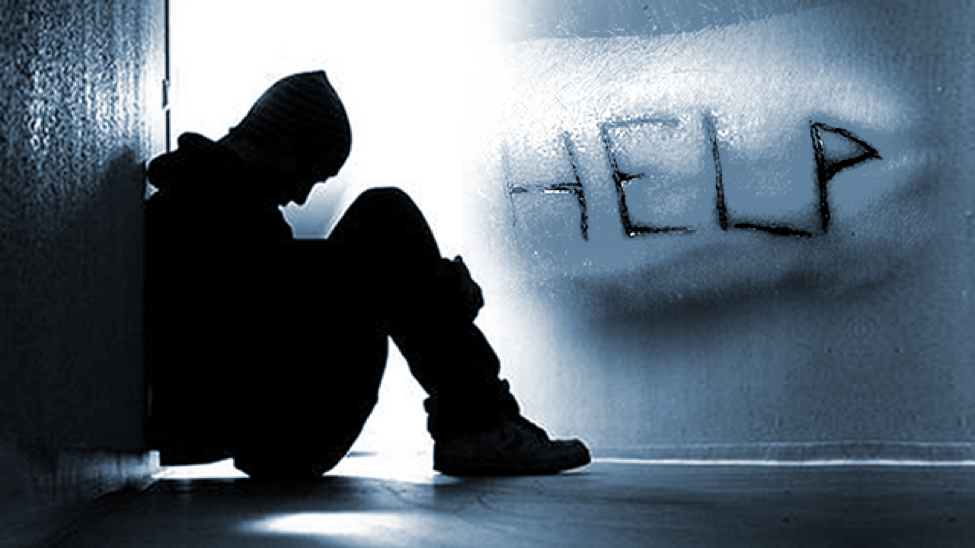Suicide. It’s a word often whispered, if mentioned at all. It’s a topic that many people are afraid or ashamed to talk about openly. Approximately 1 million people die each year from suicide. What drives so many individuals to take their own lives? To those not in the grips of suicidal depression and despair, it’s difficult to understand what drives so many individuals to take their own lives. But a suicidal person is in so much pain that he or she can see no other option.
Suicide is a desperate attempt to escape suffering that has become unbearable. Blinded by feelings of self-loathing, hopelessness, and isolation, a suicidal person can’t see any way of finding relief except through death. But despite their desire for the pain to stop, most suicidal people are deeply conflicted about ending their own lives. They wish there was an alternative to suicide, but they just can’t see one. It is very important to recognize signs of suicide and be able to stop your loved one from taking their lives. We will discuss the appropriate steps one can take to save the lives of others.

Warning Signs
Most suicidal individuals give warning signs or signals of their intentions. The best way to prevent suicide is to recognize these warning signs and know how to respond if you spot them. If you believe that a friend or family member is suicidal, you can play a role in suicide prevention by pointing out the alternatives, showing that you care, and getting a doctor or psychologist involved.
Major warning signs for suicide include talking about killing or harming oneself, talking or writing a lot about death or dying, and seeking out things that could be used in a suicide attempt, such as weapons and drugs. These signals are even more dangerous if the person has a mood disorder such as depression or bipolar disorder, suffers from alcohol dependence, has previously attempted suicide, or has a family history of suicide. A more subtle but equally dangerous warning sign of suicide is hopelessness. People who feel hopeless may talk about “unbearable” feelings, predict a bleak future, and state that they have nothing to look forward to. Other warning signs that point to a suicidal mind frame include dramatic mood swings or sudden personality changes, such as going from outgoing to withdrawn or well-behaved to rebellious. A suicidal person may also lose interest in day-to-day activities, neglect his or her appearance, and show big changes in eating or sleeping habits.
The following are signs of suicidal behavior or intent:
- Talking about suicide – Any talk about suicide, dying, or self-harm, such as “I wish I hadn’t been born,” “If I see you again…” and “I’d be better off dead.”
- Seeking out lethal means – Seeking access to guns, pills, knives, or other objects that could be used in a suicide attempt.
- Preoccupation with death – Unusual focus on death, dying, or violence. Writing poems or stories about death.
- No hope for the future – Feelings of helplessness, hopelessness, and being trapped (“There’s no way out”). Belief that things will never get better or change.
- Self-hatred – Feelings of worthlessness, guilt, shame, and self-hatred. Feeling like a burden (“Everyone would be better off without me”).
- Getting affairs in order – Making out a will. Giving away prized possessions. Making arrangements for family members.
- Saying goodbye – Unusual or unexpected visits or calls to family and friends. Saying goodbye to people as if they won’t be seen again.
- Withdrawing from others – Withdrawing from friends and family. Increasing social isolation. Desire to be left alone.
- Self-destructive behavior – Increased alcohol or drug use, reckless driving, unsafe sex. Taking unnecessary risks as if they have a “death wish.”
- Sudden sense of calm – A sudden sense of calm and happiness after being extremely depressed can mean that the person has made a decision to attempt suicide.

How to Help a Suicidal Person
- Give all of your attention to him or her. Actively listen to what that person has to say and actively watch what he or she does. Do not try to multi-task; do not take phone calls (except from professional helpers); do not try to do anything other than to be present with this hurting person. If you have responsibilities that cannot be delayed (e.g., child care), make alternative arrangements so that someone else can handle those duties.
- Put your own ego aside for a moment. Find it within your heart to care about the suicidal person you are with. Let him or her know that you care, but be genuine about it. Better not to go there if you aren’t feeling it.
- Do your best to relate to and empathize your friend or family member’s pain. Don’t minimize feelings or shame someone for his or her thoughts. In other words, don’t say stuff like, “is that all that’s bothering you? I can’t believe that’s upsetting you this much!” This may be how you really feel, but sharing such an assessment with someone in pain is cruel, as well as conveying a lack of empathy on your part. If you cannot relate to the person’s situation, at least don’t say anything that is likely to be viewed as insulting or demeaning.
- It’s easy to start feeling frustrated and even angry at a friend or family member who “refuses to put things into proper perspective” (ex: to see things the way you see them). Anticipate that you might become frustrated and do your best not to lose your cool. Save your emotions for later- the focus of the present situation is not about you. The focus should be on the hurting person in front of you.
- Ask whether there is a suicide plan. If there is, draw out the details of that plan as best you can. Remember, though, that this is not meant to be an interrogation. You can ask them the following:
- How will the suicide take place?
- What means will that method of death require?
- Are the means easily available or at hand?
- Is there a time when the suicide will occur?
- Is there a place where the suicide will occur?

- Continue to express your willingness to listen. However, do not force the suicidal person to talk. If your friend or family member doesn’t want to talk, that is okay. To the extent that it is appropriate in the context of your normal relationship, consider holding hands, or touching the person on the shoulder as a gesture of support. If you would not normally touch this person, then make your support clear via verbal means.
- Don’t leave your friend or family member alone until you are sure he or she is safe. Promise the suicidal person that you will stay there, and then keep your promise. It’s okay to hand the person off to someone else who can watch over him or her (such as a professional helper, emergency room (ER) staffer, or other similarly committed and responsible friend or family member). If someone is in enough danger to require multiple shifts of “sitters”, however, the person needs to be hospitalized temporarily. Take him or her to the ER in that case.
- Repeatedly suggest to your friend or family member that suicidal crises are temporary things. Waiting for a while and getting help can allow the suicidal crisis to pass.
- Do not agree to keep secrets for a suicidal person; or at least, don’t agree to keep the fact that someone is suicidal a secret. In the same vein, do not agree that you will not call for professional help.
- Never challenge your friend or family member to carry out his or her suicidal plan, even if you privately think that the person is playing a game in order to attract attention. Even half-hearted suicidal gestures can result in a completed suicide

Sometimes you may suspect that someone you care about is suicidal even though he or she tells you that this is not the case. Go with your gut feeling in this situation. If you believe that your friend or family member will not be safe (despite whatever assurances are made) then go ahead and follow the steps described above to ensure that he or she gets help. It is better to err on the side of caution with regard to suicide. If you aren’t sure one way or another regarding safety, err on the side of calling professional help. Let the suicidal person know what you are doing, however, so that there are no surprises. A very likely outcome of reaching out for professional help is that your friend or family member will be brought into the hospital as a psychiatric patient for a few days, until the immediate crisis passes. Reassure the suicidal person that while no one looks forward to going to the hospital, doing so will help keep him or her safe, and may make the difference between living or dying. If your friend or family member is not acutely suicidal, but still needs and wants someone to talk to about suicidal thoughts and feelings, please encourage him or her to contact his or her doctor or therapist, or to call a suicide hotline such as 1-800-SUICIDE.
Struggling? Learn how we can help.

